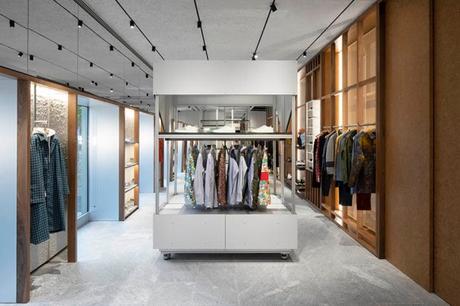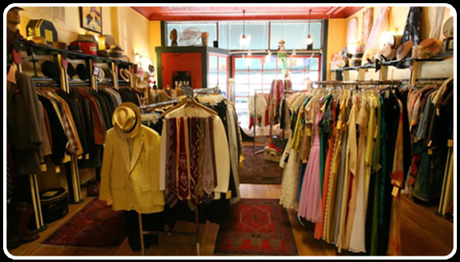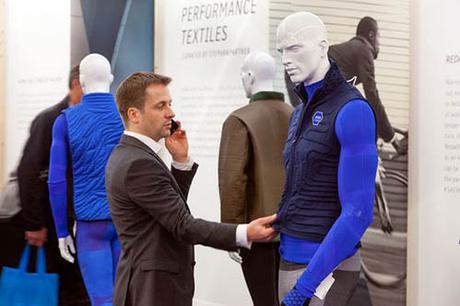In today's fast-paced world, we are constantly bombarded with new clothing options from various brands, each promising the latest trends and styles. But have you ever stopped to think about the impact of your choices?

From ethical production practices to sustainability efforts, our decisions as consumers can greatly influence not just the fashion industry but also society and the environment as a whole. Read on to discover why your choices matter in selecting fashion brands.
Better Deals
Companies often offer various incentives to loyal consumers, from discounted rates to exclusive access to new collections. Savvy shoppers who purchase from a branded line can make use of discount codes. If you are a fan of Old Navy, for example, you can find Old Navy promo codes to save on your favorite stylish and affordable apparel.
Besides the immediate monetary benefits, these savings can also indirectly contribute to a more sustainable lifestyle as you're less likely to discard items that you've carefully chosen and invested in. Even if you don't like or fit those items anymore, you can always donate or sell them, reducing textile waste in landfills and giving them a new life with someone else.
Ethical Production
As consumers, we have the power to make a difference with our purchases. In terms of clothing, choosing brands that prioritize ethical production practices means that we are not supporting the exploitation of labor or unsafe working conditions. While it can be tempting to opt for cheaper clothing that comes from factories with poor working conditions, taking the time to research and invest in ethical brands means that we can feel good about the clothes we wear.

Thanks to increased consumer demand for sustainable and ethical fashion, more companies are now adopting policies and practices that prioritize fair labor standards and safe working conditions. When you support these brands, you are sending a message that unethical production is not acceptable.
Environmental Impact
The fashion industry has gained notoriety for its detrimental effects on the environment. From the release of hazardous chemicals to water pollution and excessive waste, the impact of the industry on our planet is significant.
Fortunately, there is a growing trend among fashion brands to incorporate sustainable practices into their production processes. A sustainable fashion brand takes into account the entire lifecycle of a garment, including the materials used, production methods, and end-of-life disposal. Most importantly, they strive to minimize their environmental impact by using sustainable materials, reducing waste and pollution, and implementing recycling initiatives.
Quality Over Quantity
It's easy to fall into the trap of buying cheap, trendy clothing that's designed to be disposed of after a few wears. However, this disposable clothing culture is taking a toll on our planet. Every year, millions of tons of textiles are discarded, with many of them ending up in landfills.

Unethical brands often prioritize quantity over quality, resulting in poorly made garments that wear out quickly. The solution? Opting for brands that prioritize quality and offer durable, timeless pieces that can withstand the test of time. Although more expensive up front, investing in quality clothing means that you'll end up saving money in the long run as you won't need to constantly replace worn-out items.
Economic Fairness
Economic fairness in the fashion industry refers to the equitable distribution of profits, ensuring that every individual involved in the production process, from the cotton farmers to the garment workers, is paid a fair wage. It's about respecting and acknowledging the entire supply chain's contribution.
When we choose to support brands that uphold economic fairness, we are contributing to a more equitable global economy. Especially for local and independent brands that prioritize fair trade practices, our purchasing decisions can have a direct impact on the livelihoods of people in developing countries.
Promoting Transparency
The fashion industry has a reputation for being opaque, with brands often concealing information about their supply chain practices. This is starting to change as more and more brands recognize the importance of transparency in creating a more ethical and sustainable industry.
Now, customers can easily access information about a brand's production processes and environmental impact through certifications, labels, and company websites. They can even look for reviews and reports from third-party organizations that evaluate brands' social and environmental practices. Supporting transparent brands means that you can make informed decisions about the companies you choose to support and hold them accountable for their actions.
Supporting Diversity
For far too long, the industry has marginalized and ignored those who do not fit its traditional mold. Plus-size individuals , people of color, and members of the LGBTQ+ community have often been underrepresented in fashion. Yet, as consumers become more vocal about the need for inclusivity and representation in the industry, brands are taking notice.
Consumers signal to the fashion world that diversity and representation are essential and valued. This pressure can push the industry to become more inclusive and promote greater representation across the industry. When we prioritize diversity and inclusion, we create a fashion industry that better reflects and serves everyone.
Making a Statement
The clothing we choose to wear can speak volumes about who we are as individuals. It's not just a matter of personal style, but also a reflection of our values and beliefs. When we wear ethically sourced or sustainable clothing, we are making a statement about the kind of world we want to live in.
Take, for example, supporting local and independent brands. If you value supporting small businesses and reducing your carbon footprint, then wearing these brands' clothing is a visible way to showcase those values. Our choices have the power to make a statement and spark important conversations about the impact of our consumption habits.
Encouraging Innovation
As the demand for ethical and sustainable fashion continues to grow, it sets a precedent for the industry to follow suit. More and more brands are now investing in research and development to create innovative solutions that address environmental and social challenges in the fashion industry.

From using recycled materials to implementing new production methods with minimal waste, these advancements are there to reduce the industry's negative impact and promote a more sustainable future.
Our choices as consumers in the fashion world possess the power to influence the industry, society, and environment we live in. From supporting ethical production and environmental sustainability to advocating for economic fairness and diversity, each purchasing decision we make can send a powerful message about the values we uphold.
When we prioritize quality, transparency, and innovation, we can contribute to a positive change and help shape a more ethical and sustainable fashion industry. The next time you're about to make a purchase, remember: your choices matter.
Fraquoh and Franchomme
P.S. How do you choose the brands you buy from? How often do you go on a shopping spree? How do you prefer to shop - in stores or online? Share your feedback, questions or thoughts in the comments below! For more articles on style, fashion tips and cultural insights, you can subscribe to Attire Club via e-mail or follow us on Facebook, Twitter or Instagram!

